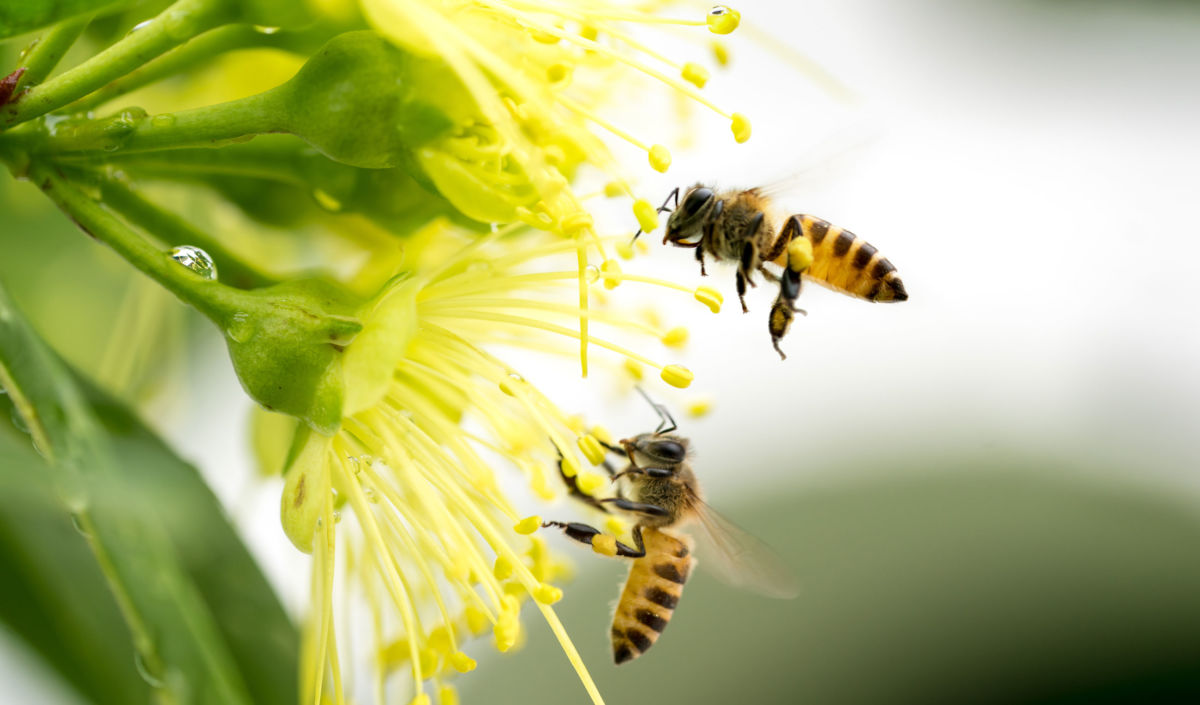Dow AgroSciences has applied for a large expansion of sulfoxaflor, a pesticide shown to harm bees, according to a federal notice last week.
The agricultural chemical company submitted an application to the US Environmental Protection Agency to allow for use of the pesticide on rice, avocados, residential ornamentals and at tree farms and greenhouses. Sulfoxaflor, which attacks the central nervous system of insects, is designed in part to replace “neonicotinoid” pesticides, which multiple studies have linked to bee colony collapse.
Research suggests sulfoxaflor may also harm pollinators. Most recently an August study in Nature linked the pesticide to reduced bumblebee reproduction.
“Sulfoxaflor-exposed colonies had a 54 percent reduction in the total number of sexual offspring produced compared with control colonies,” the authors wrote. “Sulfoxaflor exposure could lead to similar environmental impacts as neonicotinoids if used on crops that attract bees in the absence of evidence-based legislation.”
Neonicotinoid “replacements are just a new method of creating pretty much the same widespread harm,” said Nathan Donley, a senior scientist with the Center for Biological Diversity, in a statement. “This is not the right way forward.”
The EPA had previously classified sulfoxaflor “very highly toxic” to bees. The agency approved the chemical in two brand name pesticides in 2013, but two years later the US 9th Circuit Court of Appeals overturned the approval because there wasn’t enough evidence that the products were safe for bees.
In 2016 the pesticide was re-registered but, due to the court ruling, the EPA prohibited use “on crops attractive to bees before and during bloom” and during times when bees would be foraging.
In addition, sulfoxaflor has been used on an estimated 17.5 million acres of farmland under “emergency exemptions” granted by the EPA over the past couple years. This practice of granting emergency exemptions for pesticide use was recently criticized in a U.S. Environmental Protection Agency’s Office of the Inspector General report.
“We found that the [EPA’s Office of Pesticide Programs] does not have outcome measures in place to determine whether the emergency exemption process protects human health and the environment,” the report stated.
The EPA will accept comments on Dow’s sulfoxaflor application until November 13.
4 Days Left: All gifts to Truthout now matched!
From now until the end of the year, all donations to Truthout will be matched dollar for dollar up to $44,000! Thanks to a generous supporter, your one-time gift today will be matched immediately. As well, your monthly donation will be matched for the whole first year, doubling your impact.
We have just 4 days left to raise $44,000 and receive the full match.
This matching gift comes at a critical time. As Trump attempts to silence dissenting voices and oppositional nonprofits, reader support is our best defense against the right-wing agenda.
Help Truthout confront Trump’s fascism in 2026, and have your donation matched now!
